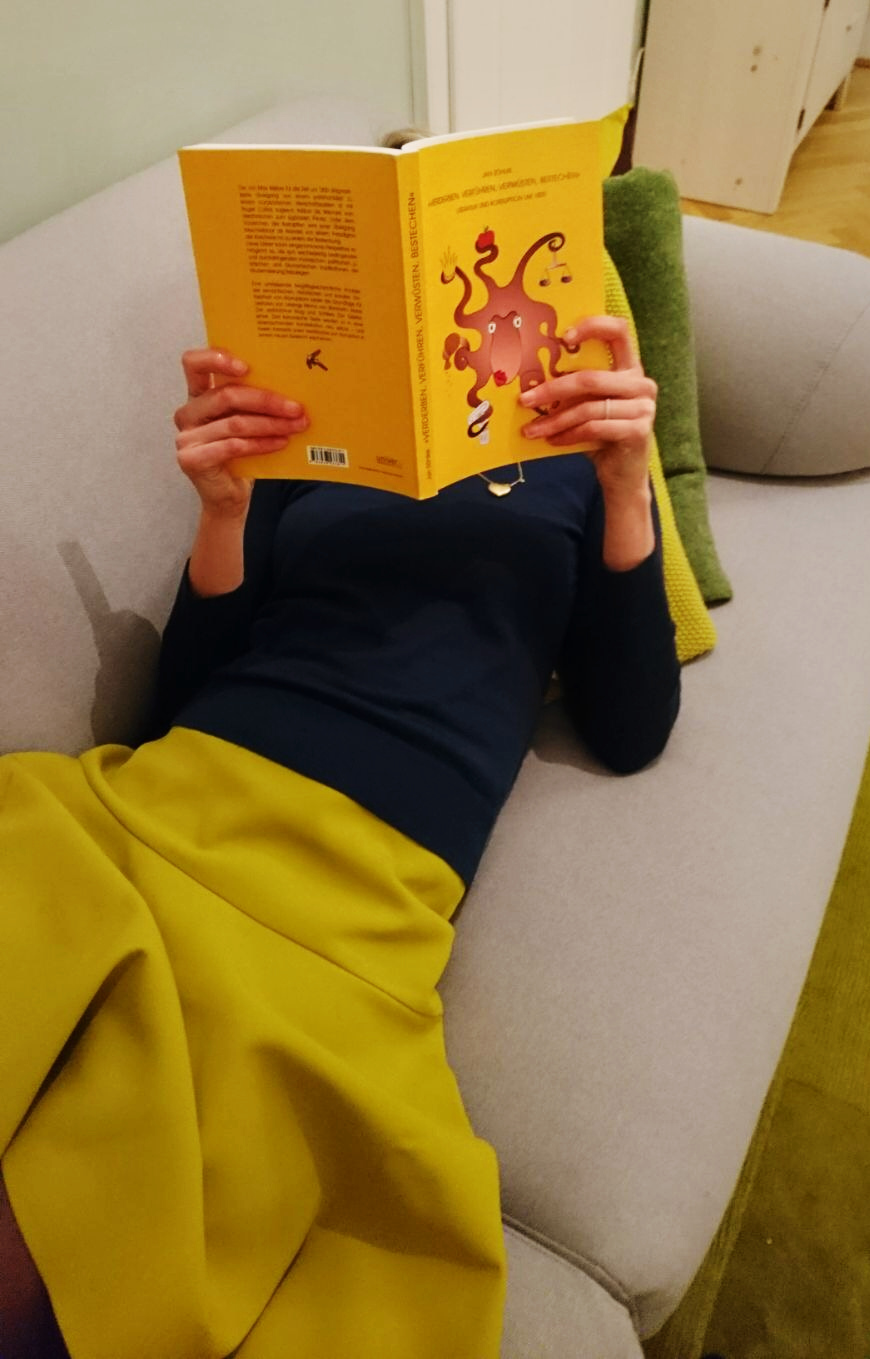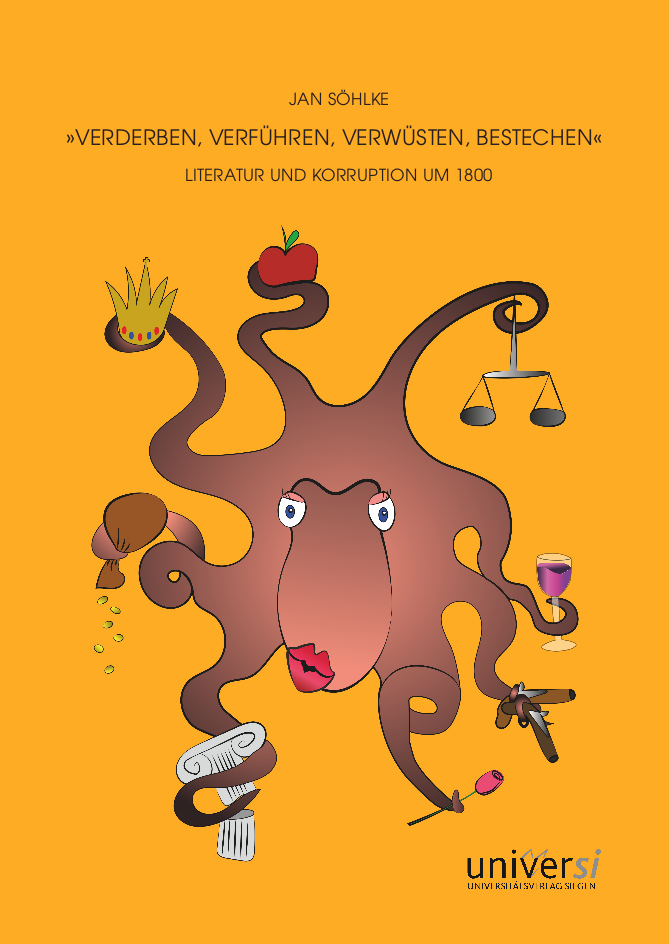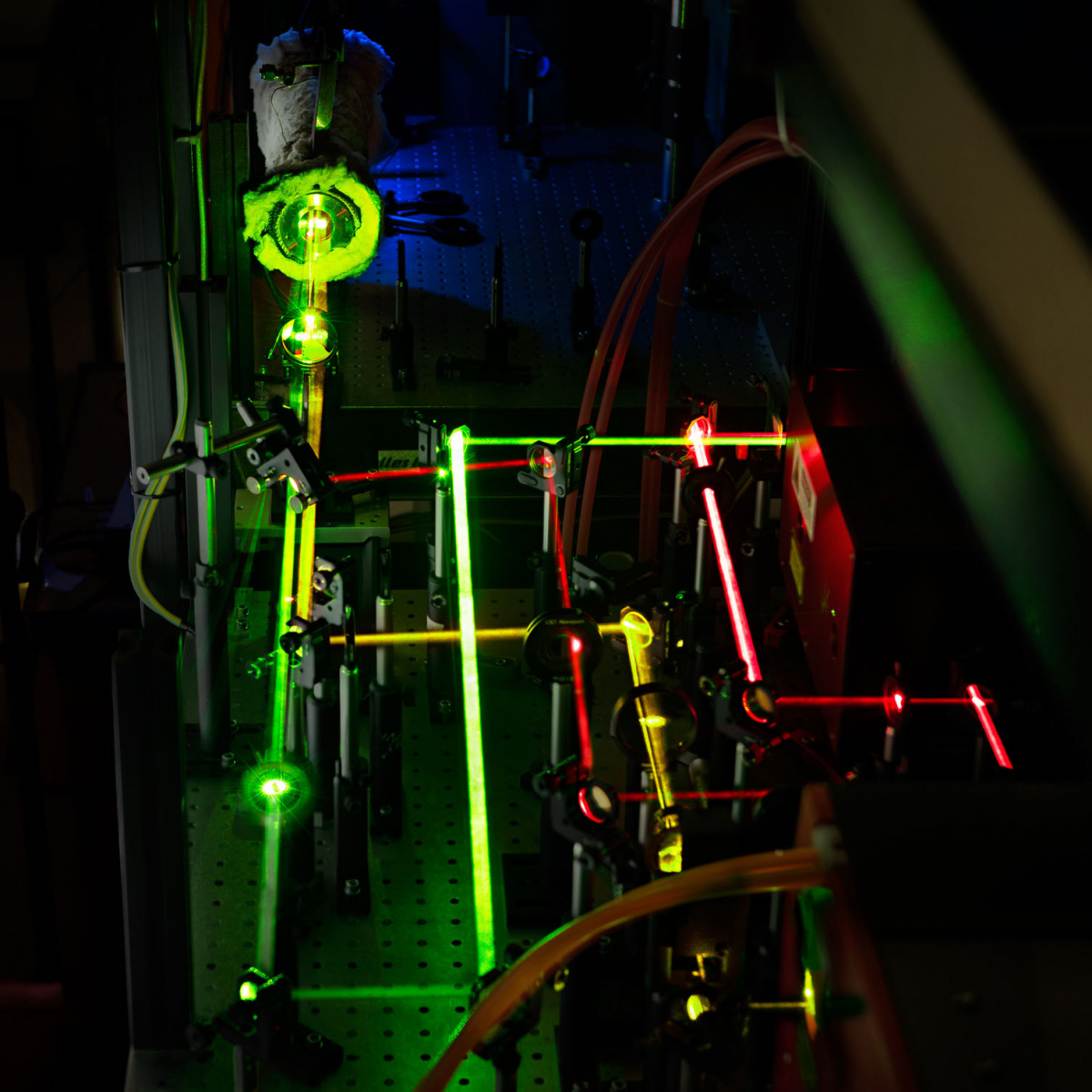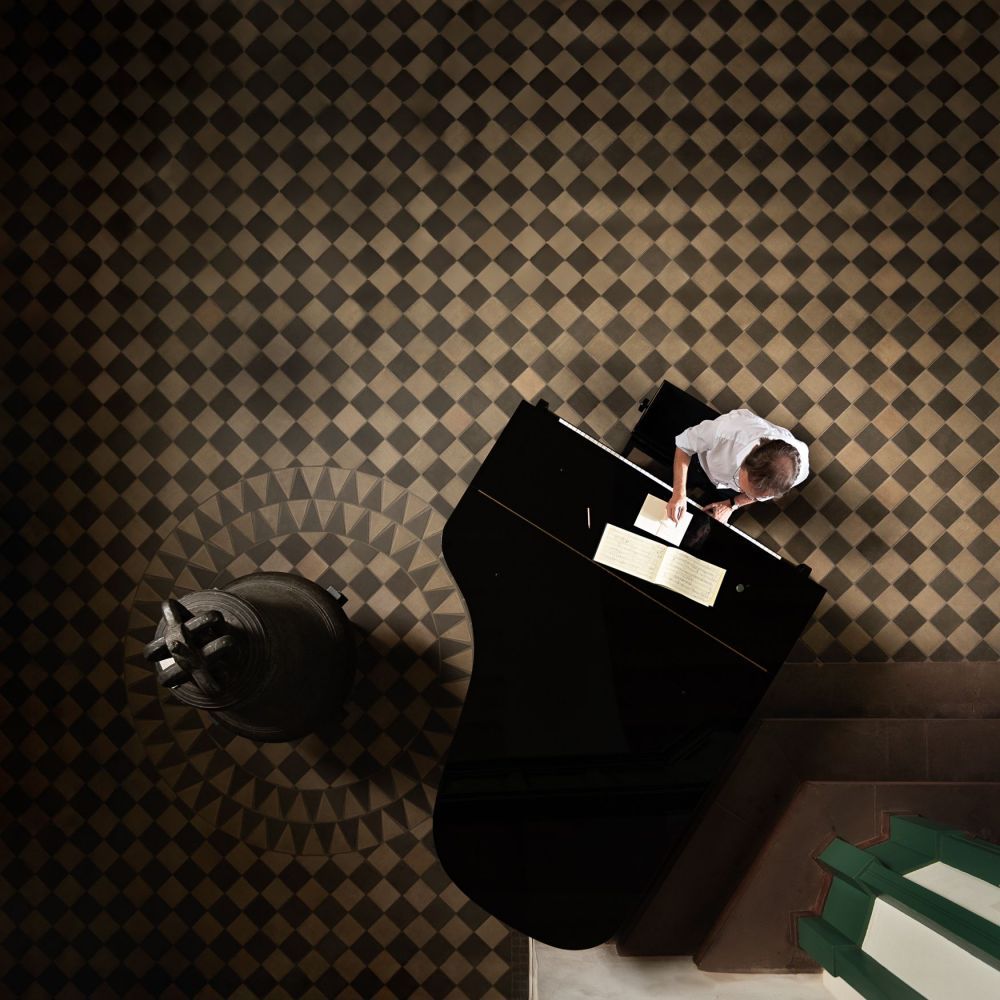Seven years ago I worked as head of CorpCom in a software company and as it goes, the old dream to go back to academia and write my PhD grew big. My idea was to write a PhD in my field of expertise on something that had a wider social relevance.

I started by going to the library one or two nights a week and, once a window of opportunity presented itself, went part time. When I saw that »corruption in German literature« should work well, in 2011/2012 I took a sabbatical in order to write a proposal that would get me funded.
After several applications and interviews in Vienna, Walferdange, Berlin and Munich I settled on Munich. So in June 2012 I began writing properly while commuting from Vienna to Munich every other week. My »office« was in the Arbeiterkammer library and the Ludwig-Wittgenstein-Lesesaal in the Austrian National library.
In October 2015 I was ready and submitted the thesis.
You should think there is a sensation of great relief when you finally hand the work of three plus years over to the officer, but somehow there wasn’t. My defense was going to be in February 2016, so I started preparing the three talks I had to give straight away.
Now, with the defense out of the way, there still was no sense of accomplishment, because you have to publish in order to close the process. So off we go to finding a publisher, setting up the text according to the publisher’s style guides, resetting tables and trees because they don’t fit on the smaller pages any more, brainstorming a cover image with Marianne Vlaschits, test printing and changing the cover three dozen times because the digital printer does not approve of the background color. Then seeing the table of contents in a friend’s brand new book and going back to my own because I absolutely wanted one like it. And on and on.
In the end, thanks to the knowledge, understanding and patience of the good people at UniPrint Siegen, there is a finished product that does make me happy – but still fails to deliver the wash of relief. Because now five books have to get to Munich university library, where the people are not happy. My books lack the title page the faculty requires. When that is adressed, I get told to contact the officer who received the first version in 2015 again in four to eight weeks for the certificate. Which I recieved two weeks ago. The End.
Here it is:
Jan Söhlke: »verderben, verführen, verwüsten, bestechen«. Literatur und Korruption um 1800. Siegen 2017, 284 pages.
ISBN: 978-3-936533-81-1
For EUR 12.80 you can order the book at universi (Siegen University Press), you can download it from OPUS (Siegen university’s open access) for free or get it from the source while you’re here.
The back cover reads
Der von Max Weber für die Zeit um 1800 diagnostizierte Übergang von einem patrimonialen zu einem bürokratischen Herrschaftssystem ist mit Roger Callois zugleich faßbar als Wechsel vom aleatorischen zum agônalen Prinzip. Unter dem Vorzeichen der Korruption wird jener Übergang beschreibbar als Wandel von einem Paradigma der Kriecherei hin zu einem der Bestechung.
Diese bisher kaum eingenommene Perspektive ermöglicht es, die sich wechselseitig bedingenden und durchdringenden moralischen, politischen, juristischen und ökonomischen Implikationen der Modernisierung freizulegen. Eine umfassende begriffsgeschichtliche Analyse der semantischen, historischen und sozialen Verfasstheit von »Korruption« bildet die Grundlage für Lektüren von Lessings Minna von Barnhelm, Kleists Der zerbrochne Krug und Schillers Der Geisterseher. Drei kanonische Texte werden so in einer überraschenden Konstellation neu lesbar – und lassen ihrerseits unser Verständnis von Korruption in einem neuen Zwielicht erscheinen.






Comments
Manu
Jan
Johannes
Jan